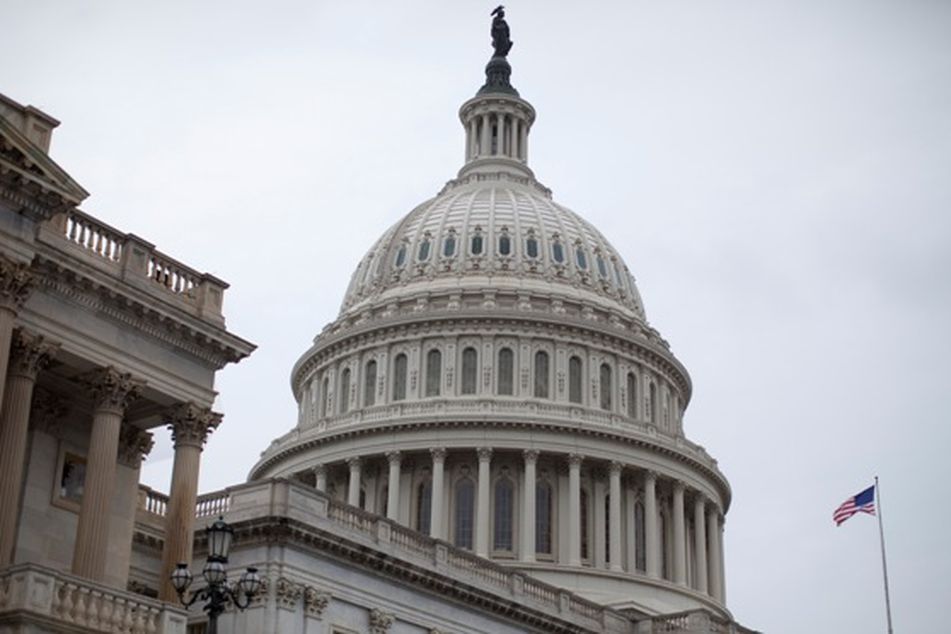Debt deal in Washington could be monumentally bad for clients

Tax breaks for investments and savings look to be prime targets for lawmakers; 'the fight is coming'
In the days prior to the collapse Friday of negotiations over raising the debt ceiling, the outlines of major tax reform that likely will be required in the long run to restore fiscal balance in Washington began to take shape.
A major deal that President Barack Obama had been pushing in talks with House Speaker John Boehner, R-Ohio, and a proposal by the so-called Gang of Six, a bipartisan group of senators, to reduce deficts by $3.7 trillion over 10 years called for tax overhaul by the end of 2012.
With Mr. Boehner walking away from talks with the White House, prospects for a major deal were dealt a setback. But Gang of Six members and Mr. Obama are still pushing for an agreement. Even if one is not reached, the emergence of a path toward substantial tax reform has some concerned that tax breaks designed to encourage saving and investment will be put in play in the foreseeable future.
Brian Graff, executive director and chief executive of the American Society of Pension Professionals and Actuaries, is worried that tax-deferred retirement savings contributions might be on the chopping block in order to make up lost revenue.
“If you’re lowering rates, that money has to come from somewhere,” he said.
“We’re in that basket that could get cut to make that math work out — just like in 1986, when the 401(k) contribution limit was cut by more than 75%. We’re raising awareness that the fight is coming, and people need to get ready,” Mr. Graff said.
He and other observers agree that the specifics of tax reform won’t be outlined in a debt ceiling agreement.
Addressing the debt ceiling “is a prerequisite for tax reform,” said Clint Stretch, managing principal for tax policy at Deloitte Tax LLP. “The struggle will be in the details.”
In fact, with House Republicans adamantly opposing any kind of tax increase in a debt ceiling agreement, the issue may still get buried.
“Judging by the political conditions right now, we’re likely to get a lot more juice out of the spending side rather than the tax side,” said Guy LeBas, chief fixed-income strategist at Janney Montgomery Scott LLC.
The Gang of Six proposal does address spending reductions, providing an immediate deficit reduction of $500 billion.
It also would instruct the Senate Finance Committee to “report tax reform within six months that would deliver real deficit savings by broadening the tax base, lowering tax rates and generating economic growth,” according to a summary of the plan.
Those goals would be achieved by reducing so-called tax expenditures as well as individual rates and establishing three tax brackets: 8%-12%, 14%-22% and 23%-29%. The committee also would have to repeal permanently the $1.7 trillion alternative minimum tax.
Gang of Six
The Gang of Six also wants the Senate panel to “reform, not eliminate, tax expenditures for health, charitable giving, homeownership and retirement, and retain support for low-income workers and families.”
The presidential deficit commission did not recommend eliminating retirement contribution tax expenditures but rather capping them at $20,000 annually or 20% of income.
It’s highly unlikely that the Senate Finance Committee could achieve broad tax reform in only six months. It’s also unlikely that the entire Gang of Six proposal will be included in a debt ceiling agreement.
But the fact that the Gang of Six group has been revived, after going dormant for several weeks, is a sign that the contours of fundamental tax reform are beginning to emerge.
The wild card may be the 87 House GOP freshmen, who were propelled into office by voters demanding a reduction in government spending. They also stridently resist tax increases. The question is how they define a tax increase, which may leave room for reducing tax expenditures.
“You can do tax reform, and tax revenue will go up,” said Rep. Marlin Stutzman, R-Ind. “If you raise rates, that’s a tax increase. I don’t necessarily agree that eliminating a tax credit is a tax increase.”
Eyes on Freshmen
As freshmen such as Mr. Stutzman start to think about tax reform, Mr. Graff will remind them that retirement savings contributions are tax deferrals rather than deductions. Mr. Graff said they are recouped when participants access their accounts.
“It’s hard to find a member of Congress who will tell you that they want to go after 401(k)s,” Mr. Graff said. “All of that said, we’re still left with this math problem” as lawmakers seek to reduce tax rates and broaden the base.
Although capital gains and dividend rates have not been mentioned in any debt ceiling proposal, experts agree that they likely would have to be raised above their current 15% level if individual rates were lowered.
But preserving low capital gains and dividend rates are especially important to Republicans, according to Dean Zerbe, managing director of alliantgroup LP.
“I don’t think you’re going to get one House Republican to go along with any tax increases,” said Mr. Zerbe, a former tax counsel of the Senate Finance Committee. “I’d put dividends and capital gains at the end of their list of those that they would be willing to move off of.”
Before Congress gets into the weeds of tax reform, however, the issue will be sorted out in next year’s elections, according to Mr. Stretch. The parties have fundamental differences about the size of government, with Republicans wanting to peg it at about 18% of the economy and Democrats at about 20.5%.
“There’s an enormous, deep ideological divide,” Mr. Stretch said. “We have to decide how much government we want — then we can figure out how much revenue to raise.”
Learn more about reprints and licensing for this article.








